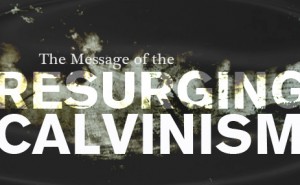This is the final reflection in my series of posts on Abraham Kuyper’s Lectures on Calvinism.
 Considering the contemporary value of Calvinism, it is interesting to note that when confronted with the claims of modernism (Scopes Trials etc.), Kuyper asserted that Christians failed to offer a substantial and coherent answer due to absence of a “unity of life system”. This unity of life system is indeed crucial if we are to thoughtfully and seriously engage the multifarious ideologies propagated by the thousands of cultures present in the global village.
Considering the contemporary value of Calvinism, it is interesting to note that when confronted with the claims of modernism (Scopes Trials etc.), Kuyper asserted that Christians failed to offer a substantial and coherent answer due to absence of a “unity of life system”. This unity of life system is indeed crucial if we are to thoughtfully and seriously engage the multifarious ideologies propagated by the thousands of cultures present in the global village.
The phrase, unity of life system, expands our understanding of Weltschauung, encompassing its inherently integrative ability. Kuyper points out three main conditions necessary for a complete life-system: 1) our relation to God 2) our relation to man 3) our relation to the world. Beginning with our relation to God, Kuyper reasons that we must start our thinking where the consciousness of all life has its unity- theologically in God and existentially in drawing near unto God.
Calvinism and Man, God, and the World
Concerning these three conditions, Kuyper states: Relation to man – Calvinism views man both positively and negatively. The glory of man is that he has been made in the image of God, yet the image has been disfigured through the fall. According to Calvinism these two things are held in common by all men. Relation to the World – Paganism places too high a value on the world and Romism, especially in Monasticism, places too low a value on creation. Contrary to Romism, Calvinism does not argue that the church is to rule over all other areas of life, the sciences, education, etc. Instead of the particular grace associated with salvation, it is God’s common grace that reaches the world over, through which he “relaxes the curse.”
Calvinism vs. Modernism & Postmodernism
It could be argued that Modernism (or Post-modernism) has provided the necessary worldview to deal with cultural, social, and political issues, therefore rendering the Calvinistic one unnecessary. However, as Kuyper lucidly points out, Modernism develops its worldview in reaction to God. Its entire system, although pragmatically driven by the Scientific Method, is philosophically errant, producing an aberrant of view of God. This is reflected in Modernism’s claim that God is: 1) somehow removed and disinterested from the inner workings of the world he created (Deism) 2) handicapped in his ability to infallibly communicate with his creation (Liberalism), or even worse, 3) the rejection of God as our ultimate reference point in substitution for the sole substance of reason (Descartes).
Whatever the philosophical origins of the Enlightenment, it is clear that at the philosophical level there was an attempt to repudiate the God of the Bible with rationale of man. Modernism asserts a negation of God, Calvinism assumes the existence of God and finds our dependence upon Him.
Postmodernism, on the other had, relatives God. Driven by the hermeneutic of suspicion, PM renders all notions of God as unreliable, as relative and therefore empties them of power and meaning. We are all telling different stories about God that, though the contradict one another, can possess meaning for their respective cultures. The problem with this worldview is, of course, its instability.
Calvinism Responsible for Human Flourishing?
After asserting the three conditions necessary for a coherent Weltschauung, Kuyper argues for the positive contributions of Calvinism to mankind in general, pointing out that it is through Calvinism and the spread of Christianity that peoples of the earth intermingled and shared culture and ideas, advancing human flourishing. From Judaism to present day Calvinism (New World, Africa, etc.) he argues that it was the tenants of this brand of the reformed faith that led to the political and social advance of human rights and scientific discovery. It is interesting to note that Christian Historian Kenneth Latourette makes a similar observation in his chapter on “The Expanding Effect of Christianity.” However Latourette does not limit these sources of these contributions to Calvinism, but perceives various Protestant groups to be instrumental in accomplishing global reform. In short, Kuyper’s contributions to the source of integration and a coherent Weltschauung are massive. Although we have been limited in our exploration, hopefully, this final post has provided enough insight to whet the appetite for more of Kuyper.


